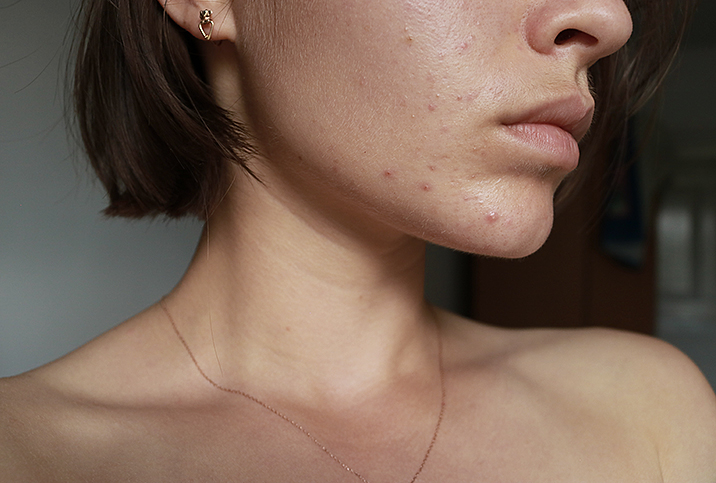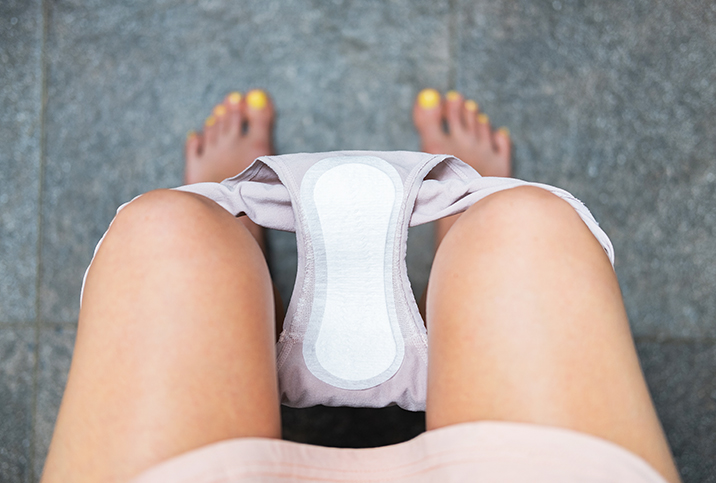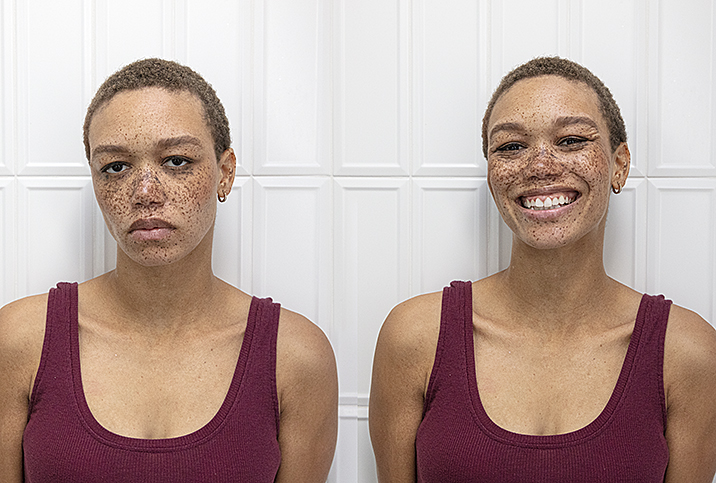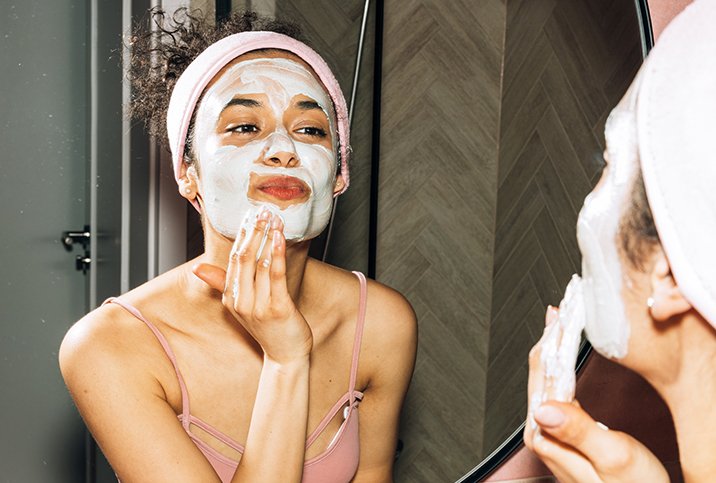Why Period Acne Happens and How to Prevent It

An estimated 65 percent of women experience acne flares around the time of their period, according to the Journal of Clinical and Aesthetic Dermatology.
Though period acne may seem inevitable, you can take many steps to keep these hormonal outbreaks at bay and maintain a clear complexion throughout the month, including during your period.
What causes acne during your period?
Women who suffer from period acne generally start noticing it about one to two weeks prior to menstruation. The aforementioned study found that an estimated 56 percent of women who experience period acne usually develop it during the week beforehand.
Around this time, estrogen and progesterone levels drop. This hormonal reaction stimulates oil glands to produce higher amounts of oil (sebum) that can clog pores, especially when it mixes with bacteria and dead skin cells.
Women who already meet risk factors for acne may experience worsened outbreaks during their periods.
What does hormonal acne look like?
Pimples that develop around the time of your period are usually red or pink in color and may feel swollen, hard and tender to the touch.
Hormonal acne can show up anywhere on your face, particularly on the chin and jawline, where sebaceous oil glands are located. These pimples often develop deep under the skin and cannot be easily popped or opened like whiteheads and blackheads. And anyway, attempting to pop hormonal acne isn’t typically recommended, due to the risk of scarring.
Ways to prevent period acne
Practicing good hygiene may greatly reduce your risk of developing period acne. Try managing your hormones by observing some healthy lifestyle behaviors.
Wash your face after exercise
After every workout, wash your face to prevent sweat, oil and bacteria from building up and clogging pores. If you’re unable to wash your face right away, pour a bit of water on a clean washcloth and wipe away surface dirt and bacteria until you can take a shower.
Avoid touching your face
Your hands and fingers usually contain oil, dirt and bacteria that can transfer to your face and clog pores. Avoid touching your face with your hands at all times if possible, and try to use clean washcloths, napkins or tissues instead.
Stop smoking
Smoking cigarettes increases your skin’s production of sebum, which causes acne, according to a study in Dermato Endocrinology. If you’re a smoker, consider quitting as soon as possible to reduce your risk of developing period acne and other more serious health problems.
Clean your mobile phone
The screen of your mobile phone may contain germs and bacteria that can transfer to your jawline when you hold the phone to your ear, so clean your mobile phone regularly. Use rubbing alcohol and a soft washcloth to remove any dirt and bacteria that may be contributing to your acne.
Manage your hormones
Though you won’t necessarily be able to prevent hormones from fluctuating around the time of your period, you can take other actions to balance your hormones and reduce the impact your period has on acne.
Regular exercise, a nutritious diet and quality sleep are all healthy behaviors that may help balance your hormones and reduce the risk of acne. You can also try stress management techniques to reduce your cortisol levels; cortisol is a stress chemical that can upset your hormonal balance.
If you’re fed up with period acne that keeps coming back regardless of what you try, ask your doctor about available treatments that can effectively prevent acne. Your doctor may also recommend birth control pills or topical medications that can help you manage and prevent outbreaks around your period.


















